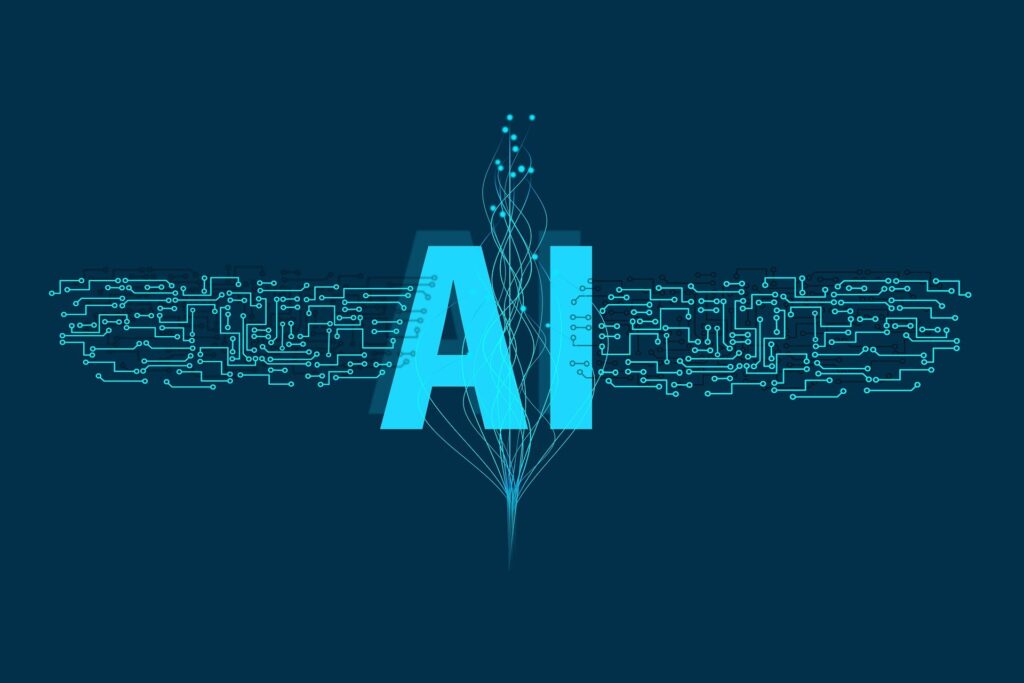The Other Side of the Coin: The Potential Downsides of AI in the Finance Industry
By Dr. Sidika Gulfem Bayram

Artificial intelligence (AI) has ushered in a wave of transformative changes within the finance industry. The advantages of leveraging these cutting-edge technologies, such as ChatGPT, have been extensively discussed in recent publications, heralding a new era of efficiency, automation, and data-driven decision-making. However, in this era of rapid technological advancement, it is equally essential to recognize and address the potential downsides and risks associated with integrating AI into finance. This blog delves deeper into these concerns, offering a nuanced perspective backed by real-world examples and established research.
Data Privacy and Security Concerns
One of the foremost concerns stemming from the proliferation of AI in finance revolves around data privacy and security. The finance sector deals with extensive sensitive financial data, including personal and transactional information. AI systems, including ChatGPT, require access to this data for training and operational purposes, raising pertinent questions about safeguarding individuals’ personal information.
For instance, a 2017 report by the World Economic Forum emphasized the critical nature of data privacy in the context of AI. The report underscored how the misuse or mishandling of customer data by AI algorithms could lead to severe consequences, including privacy breaches and financial fraud. Such instances could have far-reaching implications, eroding trust in financial institutions and undermining the industry’s integrity.
Algorithmic Bias and Fairness
AI algorithms are not immune to bias when used in finance, which can propagate unfair or discriminatory outcomes. Consider a study conducted by the Federal Reserve Bank of New York in 2020, which highlighted the propensity of machine learning algorithms to unintentionally perpetuate biases present in historical data. This could manifest in discriminatory lending practices, skewed investment decisions, or inequitable access to financial services.
The implication here is that while AI can undoubtedly enhance efficiency and precision, it is incumbent upon the finance industry to rigorously monitor and mitigate algorithmic bias to ensure equitable treatment of all stakeholders.
Overreliance on AI
The allure of AI’s capability to enhance decision-making processes can sometimes lead to an overreliance on AI systems. This overreliance can inadvertently breed complacency and reduce the degree of human oversight—a phenomenon called “automation complacency.”
A report by the Bank for International Settlements sounded the alarm on this issue within the finance industry. It emphasized the critical importance of maintaining human judgment in crucial decision-making processes. While AI can assist in data analysis and predictions, the ultimate responsibility for sound financial decisions should remain firmly rooted in human hands to ensure prudence and accountability.
Regulatory Challenges
The rapid evolution of AI in finance presents a problem for regulatory bodies. The landscape is evolving swiftly, and creating comprehensive and adaptive regulatory frameworks is intricate. In a report discussing AI’s implications in finance, The Financial Stability Board recognized the need for regulatory frameworks that can effectively address the unique risks associated with AI, including algorithmic trading and data security.
Regulatory challenges extend beyond national borders, necessitating a concerted effort by regulatory bodies to harmonize standards and ensure that AI is harnessed responsibly within the finance industry.
Job Displacement
While AI can significantly augment productivity and efficiency, there is the potential for it to displace traditional finance roles. As tasks and processes are automated, specific parts may become redundant. While AI can create new opportunities and functions within the industry, it may also require substantial reskilling and workforce adaptation.
PwC’s research suggested that removing traditional finance roles may necessitate significant workforce adaptation. It highlights the importance of thoughtful transition strategies to mitigate the impact on the workforce and ensure a smooth evolution of the industry.
Conclusion
In conclusion, while integrating AI into the finance industry offers substantial benefits, it is imperative to acknowledge and proactively address the potential downsides and associated risks. These concerns encompass data privacy and security, algorithmic bias, overreliance on AI, regulatory challenges, and job displacement. To harness the full potential of AI while mitigating these risks, financial institutions, policymakers, and stakeholders must collaborate diligently to establish robust ethical guidelines, adaptive regulatory frameworks, and effective accountability mechanisms.
Balancing innovation with responsibility is paramount in ensuring that AI continues to be a force for positive change within the finance industry while safeguarding the interests and trust of all stakeholders. Only through a comprehensive and conscientious approach can we successfully navigate the evolving landscape of AI in finance.
References:
- World Economic Forum, “Beyond Fintech: A Pragmatic Assessment of Disruptive Potential in Financial Services,” Published August 2017.
- Federal Reserve Bank of New York, “Discrimination in Lending: A Comparative Analysis of Premiums in Mortgage Lending,” Published May 2020.
- Bank for International Settlements, “Big tech in finance: opportunities and risks,” Published January 2020.
- Financial Stability Board, “Artificial Intelligence and Machine Learning in Financial Services: Market Developments and Financial Stability Implications,” Published November 2017.
- PwC, “Financial Services Technology 2020 and Beyond: Embracing disruption,” Published March 2020.